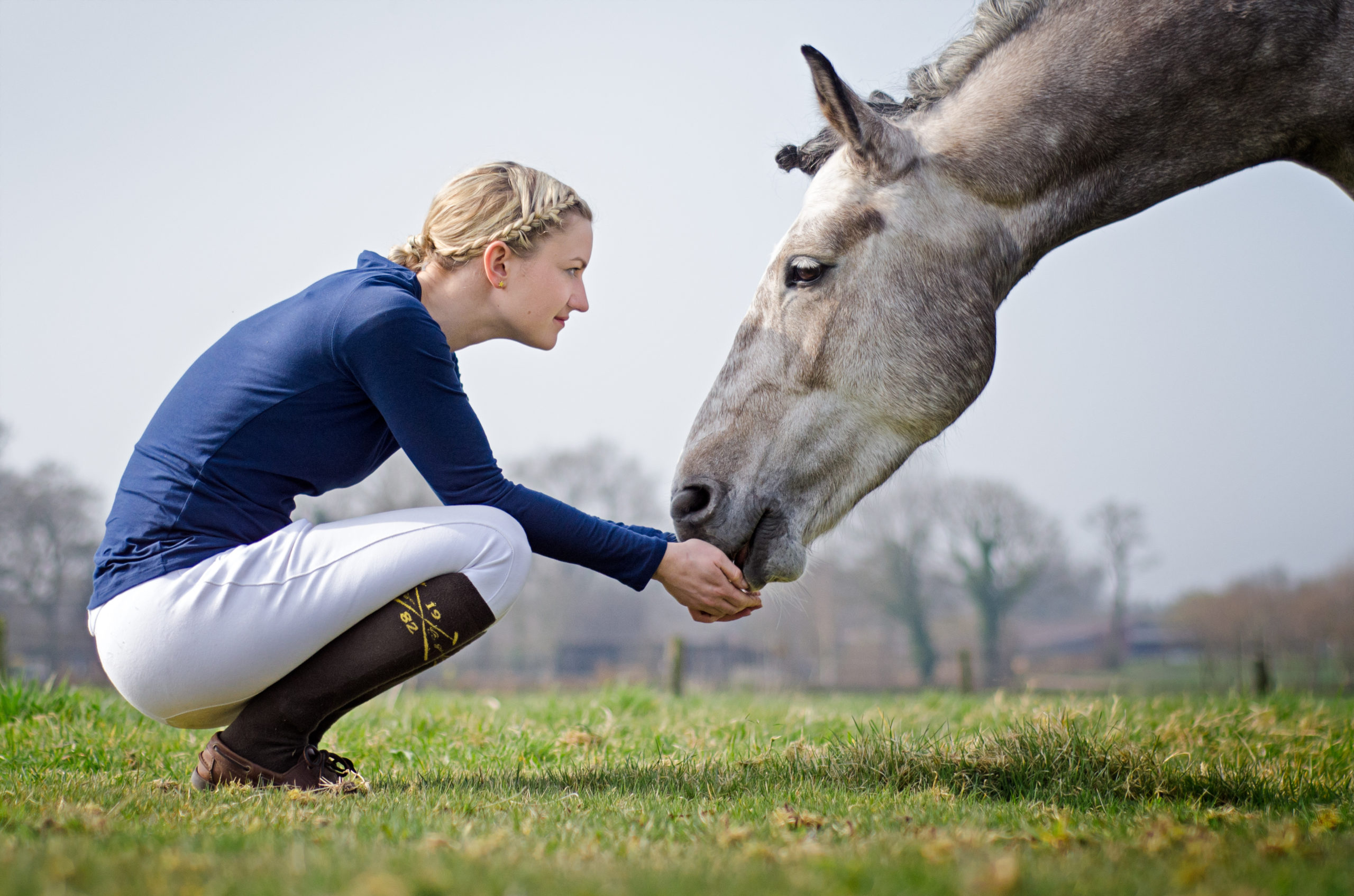Low-sugar horse treats are not just a passing equine diet fad. But anyone who has been around a horse knows how hard it is to resist the temptation to want to give them a yummy treat. We just love to see their eyes open up wide as their warm muzzle reaches forward to take the treat. The way their teeth chomp and lips smack while their ears are locked on you, asking for another.
But have you ever thought about what might be in those equine treats you’ve been feeding your horse several times a week, if not every day?
We horse owners spend valuable time and money to ensure our horses stay healthy. The treats we feed them should be looked at just the same!
Here are 5 reasons why you should feed your horse treats or cookies that are low in sugar and carbs:
1. Feeding your horse too much sugar disrupts the horse’s normal digestion process.
When too much sugar and starch enter a horse’s digestive system, the excess sugars and starches leave the foregut, where they normally would be absorbed for energy, into the hindgut. This can cause digestive upset and other issues such as laminitis or colic. According to Kentucky Performance Supplements, this is especially true for a horse who already has a sensitive or compromised digestive tract.
2. Sugary feeds and treats can be detrimental to the health of horses with insulin resistance.
Insulin plays a vital role in the horse’s body. It is the hormone that helps carry glucose, which is made in the digestive tract from digesting simple sugar and starches, to the rest of the body’s cells. Horses can become resistant to this hormone, usually due to either genetics or obesity. When insulin cannot do its job properly, the body thinks that there is not enough of it and keeps pumping out more and more insulin.
The more sugar horses eat, the more glucose is produced, and the more insulin is required to carry that glucose. While insulin is a normal hormone created in the body, too much of it is not good for the horse and can result in problems like laminitis or other metabolic conditions. This is why even a small amount of sugar in a horse with insulin resistance’s diet can have a very big effect on their health.
For more information on insulin resistance in horses, read the October 2019 TheHorse.com article, Grasping Insulin Resistance in Horses.
3. Almost everything your horse eats already has sugar and carbs in it.
Low-sugar horse treats help to limit the extra sugars and carbs your horse is given. This is important considering there is no such thing as a “sugar-free” diet for horses. According to SGS AgriFood Laboratories, hay and pasture both contain sugar and carbs, as well as ingredients found in supplements and processed feeds. So limiting the extra sugars and carbs we give horses is critical to their overall health. It’s like limiting the amount of chocolate cake we eat daily!
4. Excessive sugar can cause stomach ulcers in horses.
In part as the result of a 2019 equine health study by The National Center for Biotechnology Information, we now know that stress and restricted forage are both inducers of gastric ulcers in horses. Another big contributing factor is diets high in sugar. Selecting a low-sugar horse treat for your animal can help.
5. Diets high in sugar can lead to overweight or even obese horses.
Back in 2007, Equine News reported that horses who are overweight are at a higher risk for several health concerns including founder (laminitis), different metabolic conditions, colic-causing lipomas, increased stress on organs, reduced reproduction performance, heat stress, strain on joints and connective tissues, and more.
More recently Dr. Tom Lenz wrote in an article on obesity for the American Association of Equine Practitioners (AAEP), “Fat horses are at greater risk for exercise intolerance, founder, metabolic syndrome, insulin resistance, the formation of colic-causing lipomas (fat tumors in the abdomen), joint and bone problems, reduced reproduction efficiency and increased stress on their heart and lungs.”
The most important reason: A longer, happier life for your horse.
It is clear to see that too much sugar in a horse’s diet can lead to many different health problems down the road. This is true for horses of all ages, breeds, shapes, and sizes. Limiting the amount of sugar we give our horses, even in their daily cookies, can help ensure they will live a long and healthy life!

